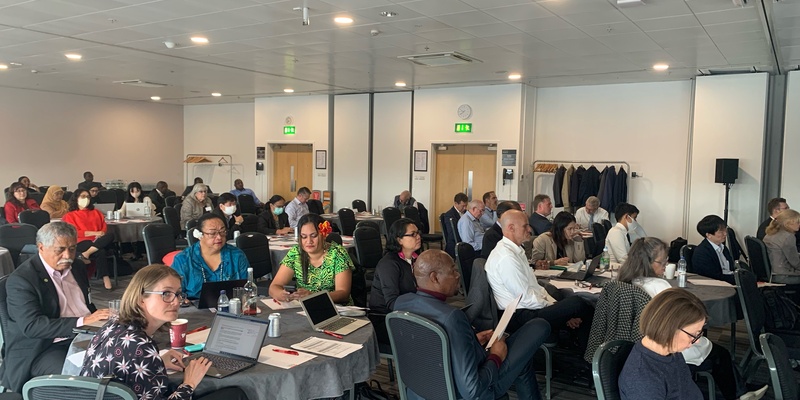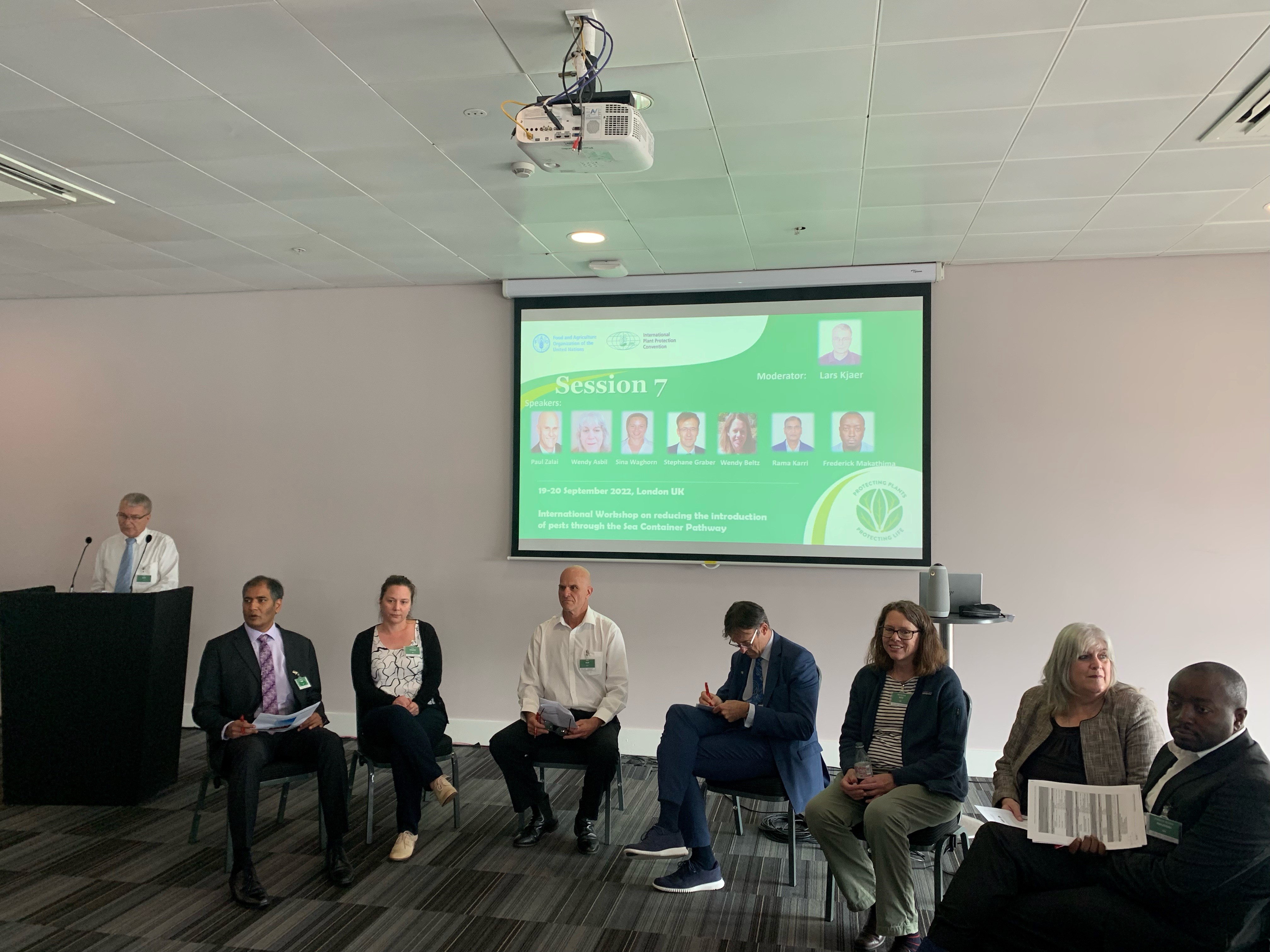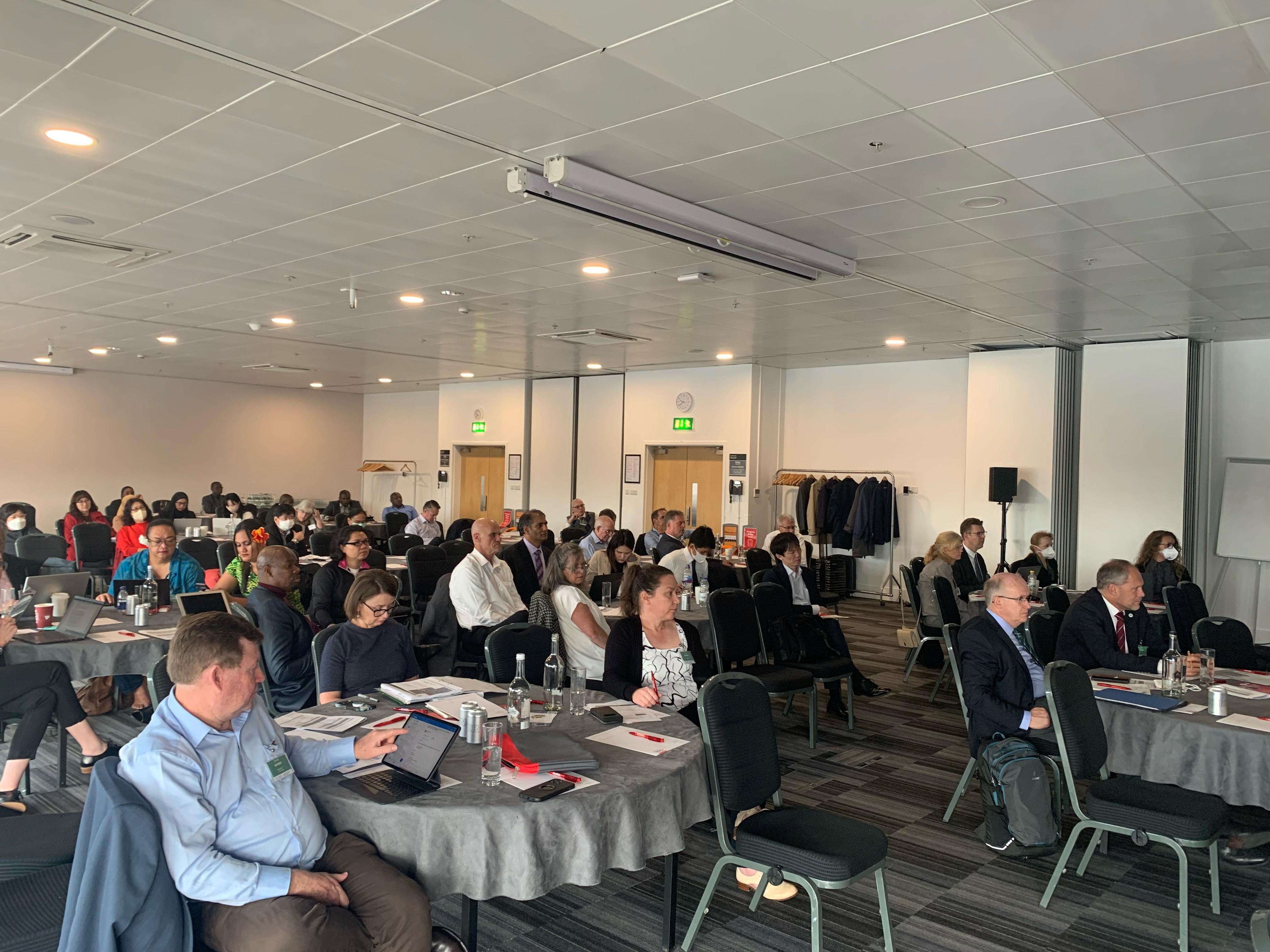Successful International Workshop on reducing the introduction of pests through the Sea Container Pathway
Posted on Wed, 28 Sep 2022, 10:40

Rome, 28 September - The International Plant Protection Convention (IPPC) held an international workshop on reducing the introduction of pests through the Sea Container Pathway from 19-20 September in London, United Kingdom.
National economies depend on the efficient and uninterrupted movement of trade, which is facilitated by the efficient movement of sea containers through a complex and time-sensitive logistical system. With more than 240 million containers shipped each year, the scale of sea container operations has become monumental. As a consequence, any regulatory requirements or changes to the system could have substantive indirect effects that may far outweigh any benefits arising from the regulations.
The workshop was attended by 120 participants from 35 countries representing National Plant Protection Organizations, Regional Plant Protection Organizations, international organizations and industry stakeholders such as container owners, shipping lines, container manufacturers, freight forwarders, packers, port authorities, marine terminal operators, shippers, importers, and exporters. It presented and discussed the conclusions and recommendations of the Sea Container Task Force (SCTF) report and enabled a better understanding of potential ways to address the issue of pest contamination of sea containers and their cargoes. The workshop enhanced the knowledge of the factors limiting the development of new measures and implementation of the recommendations of the Commission of Phytosanitary Measures and/or an International standards for phytosanitary measures (ISPMs); and provided a forum for discussion on existing solutions, guidelines or specific measures to reduce phytosanitary risk in the sea container pathways.
Osama El-Lissy opened the workshop and stated that ‘’The establishment of the CPM Focus Group on Sea containers and Container Cleanliness Industry Advisory Group (CCIAG) strengthened the relationships with relevant IPPC stakeholders from the private sector. These kinds of collaborations are key to ensure shared ownership and participation to any normative work that the IPPC community may develop in the future.’’
The workshop is a part of the continuous effort of the IPPC Community and its partners to identify the challenges and opportunities to reduce the movement of pests in the sea container pathway. In 2016, the SCTF was established with the task to collect existing data from countries to analyse existing measures and consider the potential challenges. The outcomes of the workshop provided valuable insights for the CPM Focus Group on Sea Containers and its further action to globally address the pest risks associated with the movement of sea containers and their cargoes in a practical and sustainable way.
The workshop program, discussed documents and list of participants are available here.



